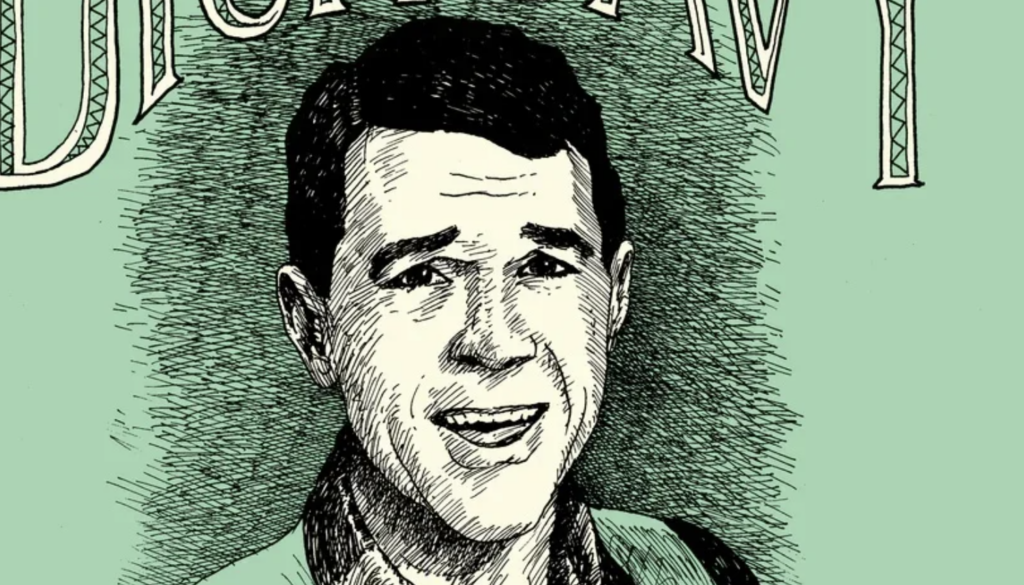KC literary community pushes back on censorship during Banned Books Week 2024
Ever since books were written, there have been those who have tried to ban them.
Our nation’s history with book suppression began in 1637—139 years before America became a country. Thomas Morton was exiled and his book was banned from the colon for making critical comments against the Puritan settlement in his 1637 3-volume series..
While authors are no longer being banished to the woods, books are still being suppressed with the same Puritanical vehemence that banned Morton’s 17th-century work.
The American Library Association saw a 65% surge in censorship over the past year, with over 4,000 titles targeted for censorship and 1,247 official demands for removal. Titles representing the voices and lived experiences of LGBTQIA+ and BIPOC communities made up 47% of those targeted in censorship attempts. The experiences of those existing outside of the white heterosexual paradigm, as expressed in stories, are at threat of erasure by such suppression attempts.
To understand the significance of the rise in book bans, we must first understand what a banned book is—A “banned book” is a book that has been removed from the shelves of a classroom, library, prison, or bookstore. A “challenged book” is a book that has been requested to be removed from these same shelves. At times, books that are being challenged are removed from the public’s access until the challenge is resolved—This can make the title inaccessible for years at a time.
Kansas and Missouri have taken starkly different approaches to handling banned books. Senator Cindy Holscher of the Kansas Legislature introduced Bill 358 on January 18th, 2024. If the bill had passed, it would prohibit school districts and local libraries from prohibiting, banning, or restricting books or other media unless certain requirements are met.
While the bill died in committee, its very creation demonstrates the Kansas government’s invested interest in protecting the literary freedom of its constituents.
Missouri is making no such legislative moves to protect literary freedom. Behind Texas and Florida, Missouri has banned the most books in the United States. In 2024, nearly 300 titles were challenged and removed from circulation in school districts across the state.
This mass removal of titles from schools is justified under Missouri’s SB 775, which passed earlier this year. A provision in the law specifically bans any depiction or description of sexually explicit material, including sexual intercourse, genitalia, or “sadomasochistic abuse.” Certain community members have been stretching the language of this provision in order to remove literary materials that they find personally offensive. Books such as Toni Morrion’s The Bluest Eye, Juno Dawson’s This Book is Gay, and Mia Kobabe’s Gender Queer are a few that have been targeted. The abusive misuse of this Missouri law has led to the exclusion of books that foster cultural understanding and personal identity exploration, limiting students’ access to stories that celebrate differences.
Speaking on the consequences of limiting a book’s accessibility, Cindy Hohl—President of the American Library Association and Director of Policy Analysis and Operational Support for the Kansas City Public Library—looks to the title Fry Bread:
“When Fry Bread by Kevin Noble Maillard was identified as a controversial book title; young readers prohibited from hearing the story will miss out on learning about the traditions of a Native American family making their favorite bread together while enjoying family time,” Hohl says. “If youth are told that their unique racial identities are prohibited in public education, how are they going to feel safe and welcomed? Every child should feel that they belong in society— and to embrace the traditions of everyone is to embrace humanity. “
Rather than be deemed controversial, such a rich title as Maillard’s Fry Bread should be embraced all the more wholeheartedly for the perspective it offers readers who are unfamiliar with Native American culture.
When a book tells the story of a group or culture that has historically been ostracized, it invites readers to step beyond their own insular perspective to grapple with new ideas. Such narratives expand readers’ emotional and intellectual landscapes, allowing them to not only better understand others but also to interrogate their own assumptions and biases.
Effectually, such stories by marginalized voices challenge monolithic portrayals of history and society, enriching literature with the diversity of human experience.“The beauty and strength of humanity is shared through literature representing the diversity among the people who exist in these shared spaces in society,” Hohl says.
Kansas City Public Library Director of Reader’s Services Kaite Stover reflects on the suppression of marginalized voices within literature, stating, “It’s pertinent to note that the literature of marginalized voices has not been at the forefront of the American publishing industry. It should come as no surprise then that if many readers are seeking this type of reading material, it can be difficult to find. That said, when these works are discovered by readers, books written by members of underrepresented groups allow the reader to make one of three choices while reading: The reader can observe the lives of others, the reader can embody the lives of others, or the reader can reflect the lives of others.”
Books, though two-dimensional objects, offer paths of engagement that are as varied and multi-dimensional as the readers who encounter them. Held in our hands and heard through our inner voice, books listen as much as they speak, bridging the lives of readers and authors in a shared exchange of thoughts, emotions, and experiences. In the words of Strover, a “book becomes a window or a doorway into an experience a reader may have no knowledge of, or the book is a mirror allowing a reader to see themselves.” Books can teach as much as they can vindicate and centralize the experiences of ostracized communities, offering understanding and validation to those whose voices have historically been silenced.
Within our own community, such luminary titles, such as Fry Bread, are actively being suppressed. Between Kansas and Missouri, over 400 pieces of literary materials—books, magazines, and newspapers—have been challenged for removal.
In an attempt to combat the rise in censorship, owner and founder of Monarch Books & Gifts, Christin Young, shares that she “always has banned books in stock.” When books are pulled from circulation, it becomes even more crucial for bookstores to carry them, ensuring that the public retains access to banned titles that may no longer be available in libraries or classrooms.
Not only does Young stock banned books in her store, but she also places them at the forefront of her space, dedicating entire displays to elevating the voices of authors whose works are being targeted. By creating a prominent and intentional focus on banned books within a physical space, booksellers, teachers, and librarians are facilitating the expression of marginalized authors’ power, offering a platform for their stories to be seen and heard despite censorship efforts. This intentional curation not only resists censorship but also fosters a space for critical dialogue and engagement with diverse perspectives.
When engaging in conversations with customers on the topic of banned books, Young advises to “read a book that offends you twice: once to understand the writer and once to understand yourself.”
By challenging readers to confront discomfort or disagreement through the lens of literature, Young advocates for a more thoughtful and open-minded approach to reading, one that values inquiry over dismissal and dialogue over division. This philosophy aligns with the Kansas City literary community’s broader mission to ensure that banned books and the voices behind them remain accessible and continue to inspire critical and empathetic thought in the face of suppression.
It is through the continued efforts of those in our literary community that allows Kansas City to remain a place where access to meaningful stories is preserved.
“The beauty and strength of humanity is shared through literature representing the diversity among the people who exist in these shared spaces in society,” Hohl says.
Removing certain books from circulation limits the depth of our collective understanding. When stories that challenge or expand the hegemonic worldview are silenced, we as a community are deprived of the opportunity to engage with the full spectrum of human experience. Readers seek stories not just for entertainment but to understand themselves and others, to grapple with complex issues, and to explore perspectives beyond their own.
“We cannot, in good conscience, expect the identity of any member of society to be banned and still consider that society to be in a healthy state,” Hohl says.
At stake in this debate is far more than access to controversial books—it is the level of understanding, compassion, and intellectual freedom that defines a healthy, thriving society.
To censor literature is to deny readers the opportunity to learn, reflect, and grow. The inclusion of diverse voices in literature ensures that society remains open, dynamic, and capable of grappling with its most pressing challenges.
By keeping banned books accessible, bookstores and libraries play a critical role in safeguarding this heightened level of understanding. They help create a space where all people, regardless of their background or identity, can see themselves represented and contribute to the ongoing dialogue that shapes a just and vibrant society.





